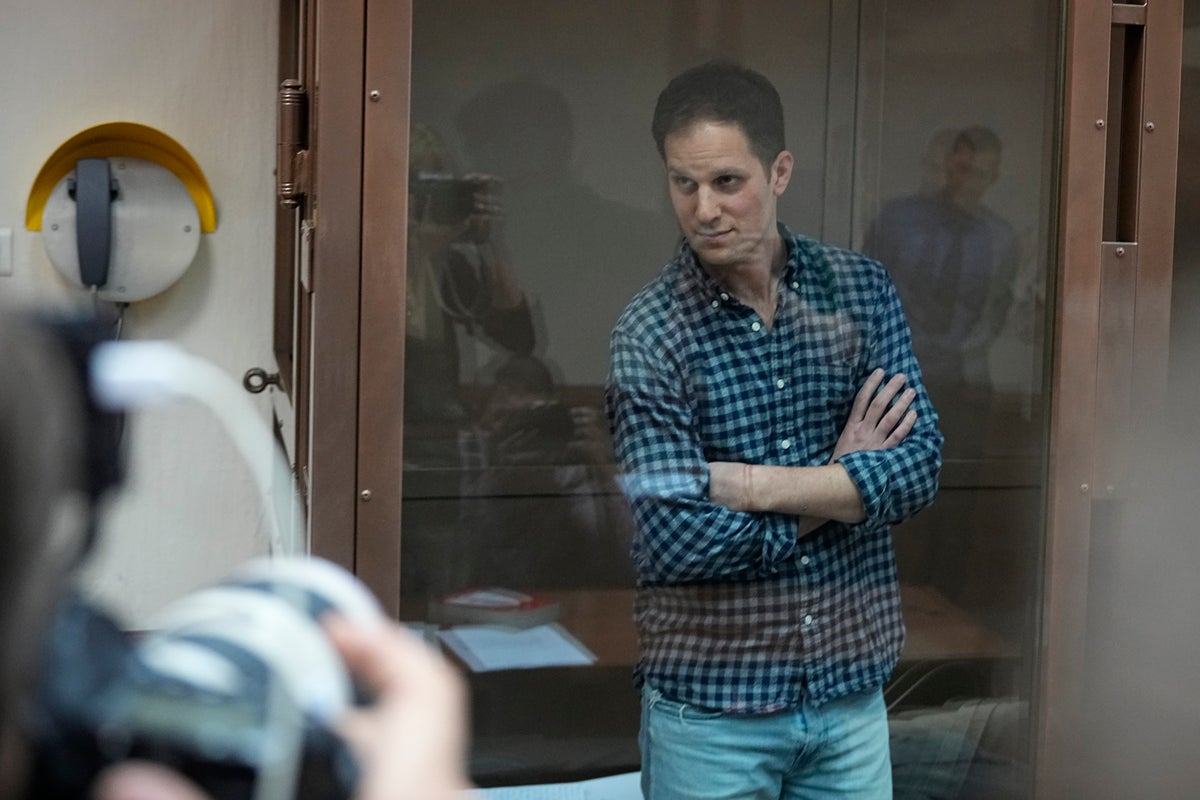
The US government will impose sanctions on officials from Russia’s Federal Security Service – commonly known as the FSB – and Iran’s Islamic Revolutionary Guard Corps Intelligence Organisation as part of the Biden administration’s effort to crack down on unlawful detentions of US nationals by both countries, senior White House officials said on Thursday.
“These actors in Russia and Iran have tried to use Americans for political leverage or to seek concessions from the United States. These actions threaten the stability and integrity of the international political system also threaten the safety of US Nationals and other persons abroad,” said a senior official who briefed reporters on condition of anonymity.
The official said both agencies are “responsible for or complicit in, directly or indirectly engaged in or responsible for ordering, controlling or otherwise directing the wrongful detention of US national abroad,” and with respect to the FSB, which is the successor agency to the Soviet-era KGB, noted that Russia’s state-controlled media has repeatedly acknowledged that agency’s role in the arrest and wrongful detention of Americans.
“Today's sanctions are one of a series of efforts some public like this some private to secure the release of US Nationals wrongfully held overseas to promote accountability for the culprits. And by doing so, to prevent and deter the next set of cases from arising in the first place. We as an administration, as a White House, as a State Department, as a government, remain committed to reuniting Americans held hostage are wrongfully detained with their families,” the official said.
A second official pointed out that the new sanctions are the first set to be imposed under authority granted to the executive branch under Executive Order 14078, which President Joe Biden signed in July 2022 in the wake of Russia’s wrongful detention of WNBA star Brittney Griner to provide “expanded tools to deter and disrupt hostage taking and wrongful detentions,” and the Robert Levinson Hostage Recovery and Hostage-Taking Accountability Act, named after a former FBI and DEA agent who disappeared in Iran in 2007.
“Today, we are using this authority ... to promote accountability for those responsible for wrongfully detaining US nationals abroad. Our action is a warning those around the world who would wrongfully detain US nationals of the potential consequences of their actions,” they said.
Quoting Secretary of State Antony Blinken, the official said the US would “continue our relentless efforts to secure the lease of US nationals who are held hostage or wrongfully detained and reunite them with their loved ones”.
“Today's actions are one tool in that cause, and we will continue to use all authorities at our disposal to bring US nationals home,” they added.
In a statement to The Independent, Levinson’s wife Christine said her husband “spent his life working for justice” and stressed that she and his children “hope today’s action serves as a warning that those looking to deprive innocent U.S. citizens of their freedom, just as he was, to use them as political pawns, will be held accountable for their abhorrent behavior”.
The new sanctions come just weeks after Russian authorities arrested Wall Street Journal Evan Gershkovich, a veteran reporter in the newspaper’s Moscow bureau, on espionage charges.
Russia also continues to detain Paul Whelan, a former US Marine who was arrested and accused of spying in December 2018, and declined US efforts to release him as part of a prisoner swap when Ms Griner was released earlier this year.
Both Mr Whelan and Mr Gershkovich have been classified as wrongly detained by the US State Department.
Asked whether the sanctions on FSB officials would hamper efforts to secure the release of Mr Whelan and Mr Gershkovich, a senior administration official said sanctions “have their role as part of comprehensive toolboxes to deal with hard challenges,” and stressed that some of the individuals covered in today’s announcement are already subject to US sanctions under other authorities.
“We think ... in the Human Rights context and the corruption context, in the contributing to war and instability context, that sanctions are a piece of holding accountable bad actors for their role in perpetrating appalling activity in the world. To have one's assets frozen, to be essentially denied the ability to move such assets through global financial system — or at least the key parts of it that enforce sanctions like this — that is a real detriment to actors in the world and we think it's important to issue sanctions like this,” they said, adding later that the administration does not believe “ongoing efforts” to resolve the cases of Mr Whelan or Mr Gershkovich will be impacted.
“We think it is important to show that there is accountability ... in addition to resolving particular individual cases as best we can as fast as we can, we are also showing that one cannot engage in this sort of awful behaviour of using human beings as as pawns, as bargaining chips, without paying consequences,” they said. “The bad actors in question here have demonstrated they need some consequences”.
The official added that there would be more sets of similar sanctions unveiled in the coming weeks and months.







